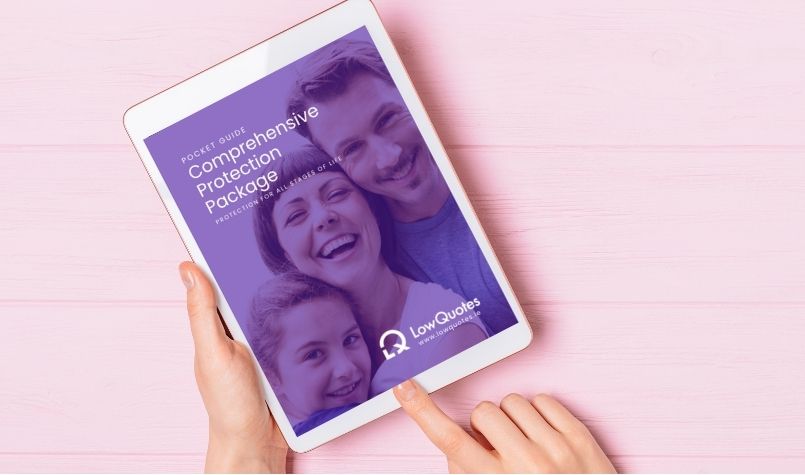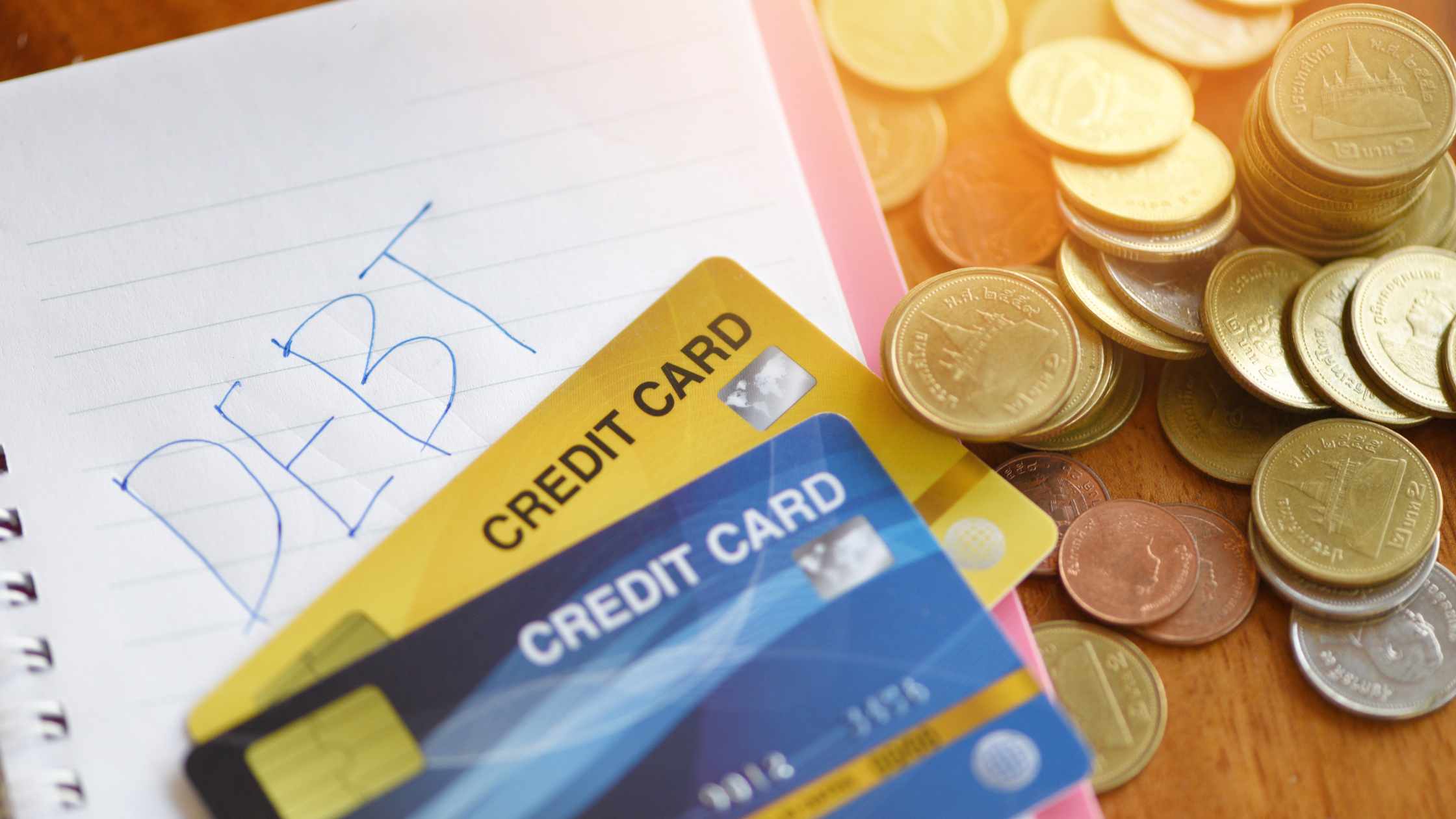Table of Contents
Firstly, you’re going to die. This is the only certainty we have in life. We don’t know how or when, but it will happen. It’s natural to feel uncomfortable thinking about or talking about it, but death is an inevitable part of life.
While you can’t change this reality, you can prepare to ensure your family doesn’t face financial hardships while also dealing with a terrible loss.
There are two important things to consider: having life insurance and understanding what happens to your debts when you die.
Having life insurance is crucial because it ensures that your loved ones are financially protected and that your debts and expenses are covered. Understanding what happens to your money after you die is also essential for making sure your loved ones are taken care of and that your financial affairs are in order.
What Is An Estate?
An “estate” includes everything a person owns that can be given out after they die. This covers real estate (like houses and land), personal items (such as cars, jewelry, and furniture), financial assets (like bank accounts and investments), and any other valuable things.
When a person dies, their debts must be paid from their estate before any other distributions are made. This has to happen even if the person left a will. Creditors can take legal action to claim the money owed to them from the estate.
Why It’s Important to Plan for Your Debts and Assets
When planning what happens to your home and other assets after you die, it’s crucial to consider both your debts and assets for several reasons:
Debt Repayment: Your debts must be paid from your estate before any assets can be given to your dependents. Without proper planning, this might mean selling your home or other valuable assets to cover debts, which might not be what you want.
Protecting Your Loved Ones: Planning ensures your loved ones are taken care of and that your assets are distributed according to your wishes. This can prevent financial hardship for your family, especially if they depend on your home or savings.
Avoiding Conflicts: Clear planning helps prevent disputes among your dependents about who gets what. This is especially important if you have a complex family situation or significant assets.
Minimising Taxes: Proper estate planning can reduce the inheritance tax your dependents might have to pay. Using exemptions and thresholds can save a lot of money.
Efficient Distribution: Planning ensures that your assets are distributed quickly and efficiently, reducing the time and stress for your loved ones during a difficult period.
Preserving Assets: By planning, you can set up trusts or other mechanisms to protect your assets from being depleted by creditors or mismanagement.
get a quote today!
Are Debts Forgiven When You Die?
One common myth is that all debts are forgiven upon death. Unfortunately, that’s not the case. Your debts don’t just disappear; they must be settled during the probate process. Here are some key points about debts after death:
Secured Debts
Secured debt is a loan that is guaranteed by an asset. For example, in a mortgage, the house is used as secure for the loan. If these debts aren’t settled, the assets can be repossessed or foreclosed.
Unsecured Debts
Unsecured debt, such as credit card balances, personal loans, and medical bills, must also be paid. These debts are usually settled using the assets from your estate.
Joint Debts
If you have a co-signer on any loans, the responsibility for the debt usually passes to the surviving co-signer.
What Happens With My Debts After I Die?
Your estate includes all the property, goods, and money you own that can be distributed after your death. When you die, any debts you have must be paid from your estate before anything else is shared out, regardless of whether you have a will.
Creditors can claim your estate to settle these debts. Sometimes, property or money can be shared out without being part of the estate, so it won’t be used to pay debts. Examples include certain credit union savings, joint bank accounts, and some insurance policies.
If you die without an estate, your debts cannot be repaid and they die with you. Your relatives don’t have to pay your debts unless they guaranteed them or are jointly responsible.
What Happens With My Family or Shared Home After I Die?
The way your shared home is handled after your death depends on how you own it. Here are the main types of ownership:
Joint Tenancy
If you and your spouse or partner own the family home together as joint tenants, your spouse or partner will automatically become the sole owner when you die.
The home won’t be included in your estate in this case.
Tenancy in Common
If you and your co-owners each own a specific share of the property, this is called tenancy in common. In this situation, your share of the property will become part of your estate when you die.
Sole Ownership
If you are the only owner, your property will be part of your estate when you die. However, your spouse, partner, or cohabitant might be able to claim a share of it.
What Are the Inheritance Tax Rules for Family Homes in Ireland?
Inheritance tax, called Capital Acquisitions Tax (CAT), applies to the transfer of assets, including family homes.
The tax rules vary based on the relationship between the deceased and the person inheriting.
A surviving spouse or civil partner does not have to pay CAT on the family home. Children and other relatives may have to pay CAT, but the amount they can inherit tax-free depends on their relationship to the deceased.
Children (Group A) have a higher tax-free limit than siblings, nieces, nephews, or other relatives (Groups B and C). Click here to see the tax group thresholds.
There are ways to protect your children from inheritance tax on assets. Read our article to learn more.
Dwelling House Exemption
The Dwelling House Exemption allows someone to inherit a home without paying CAT if they lived in it for three years before inheriting and continue to live in it for six years after, with other conditions depending on their relationship to the deceased. This exemption is to help those who genuinely live in the home.
Explore our article, Dwelling House Relief: Avoiding Inheritance Tax on the Family Home.
Secure your family’s future today!
What Happens With My Savings And Loans After I Die?
Credit Union Deposits
- If you belong to a credit union, you can choose someone to get your savings if you die.
- Up to €27,000 can go to this person without going through the normal estate process.
- Amounts over €27,000 will be handled by your personal representative.
Joint Bank Accounts
- When you open a joint bank account with someone, you can decide what happens to your share if you die.
- If you want the other person to inherit your share, it won’t be part of your estate.
- If you don’t specify, your share will become part of your estate.
Credit Card Debt, Bank Overdrafts, Personal Loans
- These are unsecured debts, meaning they aren’t tied to any specific asset.
- Creditors can claim these debts from your estate after you die.
- Repayment of these debts happens after more important debts are paid.
- Your family doesn’t have to pay your debts unless they guaranteed them.
- If the loan is in both your and another person’s names, the other person will be responsible for the debt.
- Credit union loans are usually paid off through the credit union’s insurance if you die.
What Happens With Other Unsecured Debts After I Die?
Other unsecured debts can include overdue utility bills, nursing home debt, or medical bills.
These debts are the responsibility of your estate, and creditors will usually wait until the estate is settled before asking for payment.
What Happens With My Life Insurance After I Die?
Some insurance policies have a nominated beneficiary. In this case, the proceeds of the policy go directly to that beneficiary and do not form part of your estate.
However, it’s important to know that inheritance tax may apply. If the beneficiary is your spouse, the proceeds will be tax-free. For other beneficiaries, the tax depends on their relationship to you.
For example, cohabitant couples are treated as strangers for tax purposes, not as married couples, and will have to pay Capital Acquisitions Tax (CAT). You can read our guide on inheritance tax for cohabitant couples for more details.
In other cases, the proceeds of the insurance policy do form part of your estate and can be used to pay your debts. What happens depends on the terms of the policy.
The Role of Life Insurance in Paying Your Debts
Whether you’re single, young, single parent, newlywed, or a married couple with children or not, life insurance plays a crucial role in paying your debts and protecting your loved ones.
It ensures that, in the event of your death, there are funds available to cover debts and liabilities, such as mortgages, credit card bills, and personal loans, which might otherwise burden your loved ones.
Additionally, life insurance can cover funeral costs, providing financial relief during a difficult time. By having a life insurance policy, you can ensure that your family is not left with unexpected financial stress.
Types Of Life Insurance
You can opt for a standalone life insurance policy that provides a payout in the event of your or your partner’s death.
Alternatively, you might combine different types of insurance to ensure comprehensive cover. For instance, Serious Illness Cover can be added to your policy to protect against specified critical illnesses, while Income Protection Insurance can provide financial support if you’re unable to work due to injury or illness.
Term Life Insurance
Term life insurance provides a lump sum payment to you and your family in the event of death. This type of life insurance applies to a specific fixed term; the policy will cease after the term has ended and no claim is made.
Whole of Life Insurance
Whole of Life Insurance will insure you for your entire life, continuing up until the event of your death. In most cases, this type of life insurance will cost considerably more than other products as there is a guaranteed payout.
Convertible Life Insurance
Convertible Term insurance is similar to Term insurance but has a different advantage.
The policyholder can convert the existing cover into a new, longer-term policy without requiring the insured person to provide further medical information at the time of conversion.
Read more about Convertible Life Insurance.
You can also change the policy to a “Whole of Life” policy, which guarantees you life insurance for the rest of your life.
Mortgage Protection
If you pass away before paying off your mortgage in full, Mortgage Protection insurance will cover the remaining balance.
Read more in our post about the most frequently asked questions about mortgage protection and the myths surrounding it.
get a quote today!
Life Insurance – Types of Cover
Single
Getting a quote by yourself and taking out a single policy.
Joint
This policy covers you and your partner and will pay out once. This policy can either be set up on a Joint Life First Death basis, i.e., the policy will pay out on the death of the first life assured, and cease.
Or on a Joint Life Second Death basis, i.e., there will be no payment on the death of the first life assured, however, the policy will pay out on the death of the second life assured and then the policy will cease.
Dual
Dual cover will pay out on the death of both the first and second lives assured. On the death of the first life assured, the benefits will be paid to the remaining life assured.
The benefits will be paid to their estate upon the death of the second life assured. Once the policy has paid out on both the first and second lives assured, it will cease.
How Much Life Insurance Cover Do I Need?
If you’re worried about your family being burdened with your debts after you die, it’s crucial to have the right amount of life insurance cover. This ensures that your loved ones won’t face financial strain from outstanding debts and living expenses.
The amount of life insurance you need depends on factors like your income, your family’s financial needs, and your personal situation. By considering your debts, future costs such as your children’s education, and everyday expenses, you can choose the right coverage to protect your family. This way, you can ensure they can pay off debts and maintain their lifestyle without financial hardship.
Read our article to learn more about selecting the right life insurance cover, what’s the cost and much more.
For a better understanding of life insurance and to make informed decisions, be sure to read our articles:
- What is life insurance?
- Life Insurance for superdads
- 7 Questions Single Parents Have About Life Insurance
- Life Insurance For Newlyweds
- Life insurance For Families
- Why Life Insurance Is More Important Than Ever For Young Adults
- The Benefits You Can Enjoy From Life Insurance While Alive
- Questions About Life Insurance You Always Wanted To Ask
- The Benefits Of Using A Broker To Get Life Insurance Quotes
- Common Myths And Misconceptions About Life Insurance
- What Happens If You Outlive Your Term Life Insurance?
- How Inflation Can Impact Your Life Insurance Payouts
- Get A Life Insurance Quote Quickly: A Guide For Busy People
Other Important Insurances For You
Serious Illness Cover: This policy offers protection by providing a lump sum if you are diagnosed with a specified serious illness. Learn more by exploring our Serious Illness Cover Guide.
Income Protection Insurance: Provides a regular income if you cannot work due to illness or injury. Learn more by reading our Income Protection Guide.
Health Insurance: This insurance provides cover for medical expenses, reducing the financial burden of healthcare costs for you and your children. Learn why health insurance is a must-have in Ireland.
Pension Plans
Contributions to a Pension: Besides providing for retirement, pensions can sometimes offer a death-in-service benefit, which provides a payout to dependents if you die while employed.
Read our Retirement Guide to learn everything about pensions and retirement planning.
Download our Comprehensive Protection Package Pocket Guide and read it today for detailed insights on safeguarding your loved ones’ financial future.
Gain immediate access to our comprehensive Protection Package Guide, designed to enhance your financial plan and help you achieve your goals. This guide offers vital tips, step-by-step instructions, and essential strategies for securing your financial future. Don’t wait, download now and start building a stronger financial foundation!

Your journey towards financial freedom starts here!
After you download your guide, one of our expert Financial Advisors will be in touch shortly to provide you with guidance and further relevant information to build you a customised financial plan.
Get a Life Insurance Quote With LowQuotes
Speak with one of our financial advisors, who can guide you, help you understand your options, and ensure you get the best possible policy for your situation.
Whether you’re looking for term life insurance, whole-of-life cover, a single, joint, or dual policy, or a specific plan tailored to your circumstances, LowQuotes provides the tools and information you need to make an informed decision.
We also provide a wide variety of financial services, such as mortgages, serious illness cover, pensions, financial planning, health insurance, and savings & investments.
Speak wit one of our award-winning Financial Advisors
All our content has been written or overseen by a qualified financial advisor. However, you should always seek individual financial advice for your unique circumstances.







